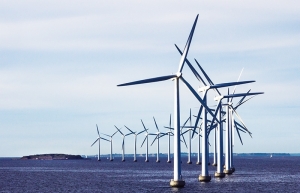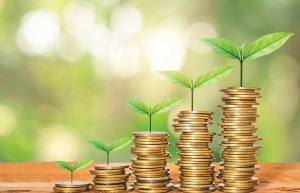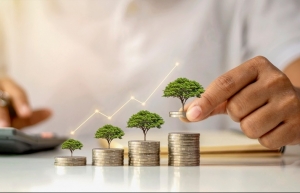Green credit initiatives highlight positive advances
 |
| Green credit initiatives highlight positive advances, illustration photo/ Source: Shutterstock |
The ASEAN Sustainable Finance State of the Market 2022 report, published last month by the Climate Bonds Initiative with the support of HSBC, highlighted that the market for green, social, and sustainability debt experienced an on-year decline of 32 per cent across ASEAN, mirroring the global trend of a 24 per cent decrease to $858.5 billion in the same year. Despite the decline, the issuance volume in the region remained robust, reaching twice the level observed in 2020.
Some positive developments deserved recognition, the report said, such as the increased issuance of government bonds and the implementation of several policy initiatives aimed at enhancing the legal framework supporting sustainable finance. These initiatives are expected to strengthen the sustainable finance landscape in the ASEAN region.
The last few weeks have witnessed some notable movements. Standard Chartered Bank (Vietnam) last week granted Tung Ho Steel Vietnam a transition trade finance facility worth $25 million, signifying a notable progression towards sustainability in the steel sector, as the funds aim to support Tung Ho Steel’s eco-conscious steel production method utilising scrap materials.
Also in May, BVBank partnered with ResponsAbility Fund Management Company from Switzerland to launch a green credit programme, offering a competitive annual interest rate of 8.9 per cent for production and business projects that promote environmentally friendly practices.
In 2022, the region experienced significant advancements in policy and market development initiatives. This included the introduction of the ASEAN sustainable bonds standards system and extensive stakeholder consultation on the initial version of the ASEAN Taxonomy.
Additionally, member countries implemented various national sustainable financial initiatives and measures, encompassing important areas such as information disclosure, financial sector translation, and classification systems.
“Along with efforts and policies on sustainable finance supported by regional governments, we are optimistic that the sustainable financial markets of ASEAN and Vietnam will continue to grow in the coming years, and provide the support needed to help the region achieve its emissions-balancing targets,” said Tim Evans, CEO of HSBC Vietnam.
The Vietnamese market specifically has witnessed increasing diversification over the past two years. Previously limited to green loans, the market has now embraced the issuance of green bonds, sustainability bonds, and sustainability-linked loans (SLLs). While the use of sustainability-linked bonds (SLBs) has yet to be explored, this situation may change with the recent introduction of ASEAN’s SLB standards.
The Vietnamese government has also demonstrated its support for sustainable finance through various efforts and policies, including the introduction of environmental risk management guidelines in the State Bank of Vietnam’s credit extension activities, as well as the announcement of a national programme aimed at supporting private enterprises in developing sustainable businesses by 2025.
“Whilst the Vietnamese green taxonomy is currently being developed and has yet to be released, the ASEAN-wide taxonomy published may provide a good base of eligible activities that can be used and/or adapted in Vietnam,” the report said. “In addition, local policymakers can implement more supportive policies to grow a credible sustainable finance market, including by drawing inspiration from other countries in the region.”
At the conference on accelerating environmental, social, and governance (ESG) adoption in Vietnam’s financial services held by PwC and the Vietnam Banks Association last week, industry experts evaluated the challenges faced by Vietnam’s green finance sector, including a lack of a common set of green taxonomy for the local market.
As of now, each bank planning on issuing green bonds in Vietnam will have its own set of definitions, rather than having a unified green taxonomy aimed at setting out common standards on environmental sustainability. The conference suggested that classification harmonisation will allow for further growth.
Abhinav Mishra, ESG leader for PwC Southeast Asia, said, “Banks should establish robust data management systems and processes to effectively handle and analyse customer ESG data. It’s also important to establish governance and compliance frameworks that include alternative measures, such as divestment, for projects that fail to meet the agreed-upon sustainability criteria.”
While SLBs and SLLs are not yet popular in Vietnam, the conference highlighted the expansion of ASEAN’s sustainable bond and loan markets, with the volume of those issued in seven ASEAN countries (Cambodia, Indonesia, Malaysia, Myanmar, Philippines, Singapore, and Thailand) consistently increasing since 2018 and experiencing a significant three-fold growth in 2020-2021.
 | Banks roll out green credits for eco-friendly approach Since the adverse impacts of climate change are better understood, many financial institutions operating in Vietnam are taking bold steps to finance and facilitate green and eco-friendly loan packages as an essential part of their sustainable investment and net-zero pledges. |
 | Top institutions seek green credit answers International organisations and financial institutions are waiting for specific criteria for green projects to unlock financing flows that can support deployment of green and sustainable initiatives. |
 | Green credit initiatives urged to push ahead development Given stringent domestic capital mobilisation, Vietnam’s banks are turning into international financial institutions for growth expansion, particularly to strengthen their sustainable and environmentally friendly loan portfolios. |
What the stars mean:
★ Poor ★ ★ Promising ★★★ Good ★★★★ Very good ★★★★★ Exceptional
Related Contents
Latest News
More News
- Raised ties reaffirm strategic trust (February 20, 2026 | 14:06)
- Sustained growth can translate into income gains (February 19, 2026 | 18:55)
- The vision to maintain a stable monetary policy (February 19, 2026 | 08:50)
- Banking sector faces data governance hurdles in AI transition (February 19, 2026 | 08:00)
- AI leading to shift in banking roles (February 18, 2026 | 19:54)
- Digital banking enters season of transformation (February 16, 2026 | 09:00)
- IFC to grant $150 million loan package for VPBank (February 13, 2026 | 09:00)
- Nam A Bank forms position as strategic member at VIFC through three key partnerships (February 12, 2026 | 16:39)
- Banks bolster risk buffers to safeguard asset quality amid credit expansion (February 12, 2026 | 11:00)
- VNPAY and NAPAS deepen cooperation on digital payments (February 11, 2026 | 18:21)

 Tag:
Tag:
















 Mobile Version
Mobile Version